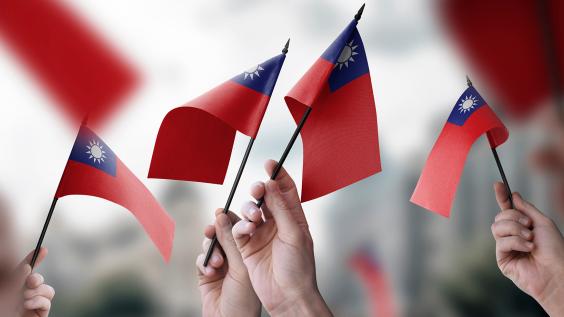Baker Briefing: Will Taiwan’s Energy Policy Doom Its Push for Sovereignty?

Table of Contents
Author(s)
Gabriel Collins
Baker Botts Fellow in Energy and Environmental Regulatory AffairsShih Yu (Elsie) Hung
Research Manager, Center for Energy StudiesSteven W. Lewis
C.V. Starr Transnational China FellowDavid M. Satterfield
Director, Baker Institute for Public Policy | Janice and Robert McNair Chair in Public PolicyOn Jan. 13, Taiwanese voters elected William Lai, a member of the ruling Democratic Progressive Party and a separatist in the eyes of Beijing, to be their next president. Experts discuss what Lai’s victory means for the island's energy policy, cross-strait relations, and push for sovereignty.
A transcript of the episode is available here. This text was AI-generated and has not been through editorial review.
Discussants
Gabriel Collins
Baker Botts Fellow in Energy & Environmental Regulatory Affairs, Baker Institute
Shih Yu (Elsie) Hung
Research Manager, Center for Energy Studies, Baker Institute
Steven W. Lewis, Ph.D.
C.V. Starr Transnational China Fellow, Baker Institute
The Honorable David M. Satterfield
Director, Rice University’s Baker Institute for Public Policy; Janice and Robert McNair Chair in Public Policy; Former Ambassador to Lebanon and Turkey
This conversation was recorded on March 25, 2024. Read our latest research on Taiwan.
About Baker Briefing
Baker Briefing is a podcast that tackles the most critical foreign and domestic policy issues of the day in conversations with experts at the Baker Institute. Hosted by the Honorable David M. Satterfield, director of the Baker Institute, new episodes are released weekly.
Attend a Live Recording
Each episode of Baker Briefing is recorded in front of a live audience at Rice University in Houston, Texas. You can attend live recordings by joining the Baker Roundtable, the Baker Institute’s membership forum.
This material may be quoted or reproduced without prior permission, provided appropriate credit is given to the author and Rice University’s Baker Institute for Public Policy. The views expressed herein are those of the individual author(s), and do not necessarily represent the views of Rice University’s Baker Institute for Public Policy.


